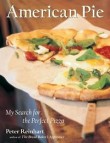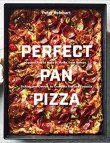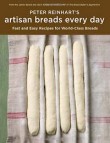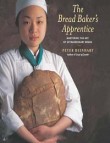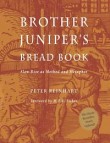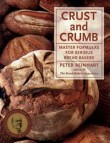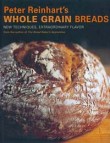Peter’s Blog: May 10, 2011
Hi Everyone,
I’m headed on the road for an exciting new Pizza Quest adventure. I can’t say where yet, but I do promise to report on it as soon as I get back. In the meantime, I want to share with you a blog posting from our friend Chef Jensen Lorenzen of The Cass House Inn in Cayucos, California. This was originally posted on his Cass House Inn blog site: http://casshouse.typepad.com/cass_house_inn_restaurant/2010/11/italy-slow-food.html
We’ll be featuring some “delicious” webisodes from The Cass House Inn in a few weeks, but I thought the journal entry that Jensen put up on his own blog about the recent trip he and his wife Grace took to Italy for the annual Slow Food Terra Madre Festival, offers us a brilliant summary of all that Pizza Quest is about too, as we seek to celebrate not just pizza but artisans and artisanship of all types. So, with his permission, I’m going to publish this week and next, Jensen’s post in 2 parts. Please visit The Cass House blog posting to view more extraordinary photos of his trip and other great blog entries.
So, here is Part One–enjoy!
Our Culinary Adventures in Italy, and Our Return Home
Before we went to Italy we decided it should be our goal to return with authentic recipes that we could recreate in our “Italian Dinner Series” at the restaurant. During the first night of service I realized something interesting. Between myself, our sous chef, garde manger, and chef di partie, we have behind us more than 25 years of experience with Italian food cookery. This was an amusing thought as we struggled to twist tajarin just right for one of our pasta offerings that night. For what ever reason, we had all grown up working in Italian kitchens. The cuisine we have grown to remember with a sense of pride and nostalgia has always been Italian. It made me question this dynamic as it relates to the next generation of young cooks. What will they look back on as the type of cuisine that formed their first impressions of “this is how it is done” in our area? For the first time I realized I am in a unique position to pass on a philosophy about our craft and how we interact with our land. This model would be directly communicated to my staff as well as the guests that dine in our restaurant. As my own experiences have left impressions on my current work, our kitchen and cooking style will become a source of perspective and nostalgia future generations of chefs. I began to seriously consider what this might mean for our identity as chefs, for our sense of lineage, history, and place. What does this mean for the trajectory of our trade and how it develops in our area? What does this mean for our food culture and what we as consumers perceive as “valuable”?
Italy influenced the perspective I have of my role as a chef. I have always maintained close relationships with local growers and will always give priority to local products on my menu, but something changed in the way I view our area regarding products with inherent regional value. Allow me to explain.
Why is caviar regarded as a delicacy, reserved for the wealthy, enjoyed by the gram on the tip of a mother of pearl spoon? When did this particular ingredient become haute? I’m no food historian, but I can almost guarantee that one day a Norwegian fisherman gutted some fat sturgeon and a pile of roe fell out. Being a good Norwegian fisherman he didn’t want to waste any part of his catch so he sold the fish and held onto the guts and roe to enjoy later. Now, being a good Norwegian fisherman he also knew that if he wanted to enjoy his pile ‘o guts later that week while at sea, he had better preserve it; he air dried the guts and cured the roe–and there you have it, caviar! That fisherman later shared his roe and someone decided they could sell it all over the world. Local pride combined with savvy marketing created a delicacy.
Assuming that this type of thing happens elsewhere in the food world, I began to ask myself what other items can be looked at as potentially having an “inflated” actual worth. In Alba, I ate mounds of white truffles. They were absolutely amazing, a rare and valuable experience for my young palate. I was, however, disappointed to find that they were SO much more fragrant when they were fresh out of the ground. It made me question the value of serving them at the restaurant after they have been shipped half way across the world. Are they just a regional specialty that should be enjoyed in that area, or are they really worth the inflated prices they fetch internationally so that myself and other chef’s can add another delicacy to our menus? It’s a tough question, and one I believe helped to shape the strong and well maintained food culture of the Italians.
The pride that Italians have in their local products is incredible. To say “I am from Parma, Modena, or Barolo” is almost always followed by “have you tried our–insert artisanal product here–it’s the best in the world!” I didn’t understand this colloquialism at first. I remember thinking “is seems like everyone I’ve met in this country makes the best of something!” And then it hit me. That’s what it is, Italians value quality food products, livestock, grain, and wine as mediums to express their personal worth and use the most conducive natural environments to make/harvest products that become so interdependent on a grower-environment-consumer relationship that the people literally become conduits of their terroir. I believe this idea can be translated anywhere in the world.
Note from Peter: I’ll post the second part of Jensen’s journal entry next week, but you can read the whole thing at his blog.
Recent Articles by Peter Reinhart
- Howard Brownstein on Turnaround and Crisis Management
- Randy Clemens and Forest Farming in Uruguay — The Back to The Earth Movement is Back!
- It’s not too late to chase your dreams: “Pizza From the Heart” A New Book by Paulie and Mary Ann Gee
- Kyle Ahlgren on the Artisan Baking Center Online Classes (and a special offer)
- Multi-James Beard Nominee Cathy Whims of Portland’s Nostrana and her Brand New Book
- Pizza Quest: KID, Manhattan’s New Slice Cafe, with Chefs Ian Coogan and Max Blackman-Gentile



